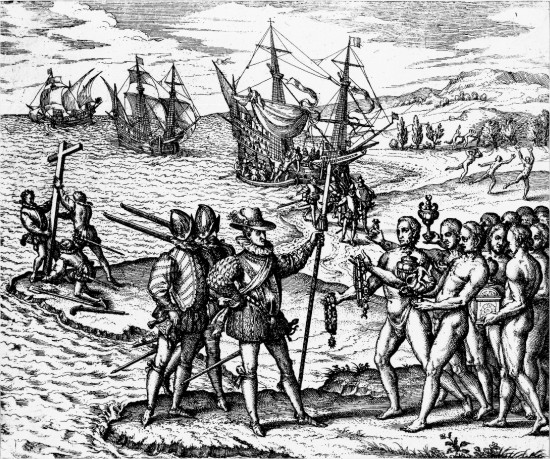
Inside
|
May It Please Your Exaltedness Megasthenes ponders the innate nature of flattery
The late Shahidul Haque excelled in his profession, journalism. His friends, who are legion, will for long remember his warm, generous and affable nature. He had the true journalist's questioning mind, and a hint of the irreverent in his make-up. In the early part of the 1980s he took a break from journalism when he accepted the assignment of press minister in the Bangladesh High Commission in New Delhi. In his office in New Delhi one day, an Indian friend of his wondered, apropos of something or other, how even perfectly sensible people could so often be susceptible to flattery. He also lamented that anyone should engage, and sometimes very openly too, in anything as undignified and insincere as flattery. Shahidul Haque was more tolerant in his response. The Almighty Himself, he said, desired to be praised and worshipped five times a day. It was thus surely understandable that mere mortals should welcome and relish praise. Raja Birbal was among the group of very gifted and capable persons who adorned the Court of Emperor Akbar, and contributed much to the golden age of Mughal rule. He once declared in court that, in one respect at least, the emperor was even more powerful than the Almighty. Akbar was appalled; this was blasphemy. On the pain of royal displeasure, Birbal was asked to explain. He was equal to the task. If the public interest warranted, the emperor could, if he so pleased, banish anyone from his empire. None, however, could be exiled from the Almighty's domain, it had no frontiers. The tales of Birbal that have come down from those times are, of course, meant more to regale than to recount historical events with accuracy. Akbar's great contemporary, Queen Elizabeth I, was certainly not unmindful of attention and praise. One day, accompanied by her retinue, the queen was walking from her palace toward the Thames where the royal boat was moored, when Walter Raleigh solicitously spread his lush velvet cloak across a puddle in the monarch's path. Her Majesty graciously stepped on the cloak and avoided muddying her shoes. Many believe that this legend, made popular by historian Thomas Fuller, and later embellished by Walter Scott in one of his novels, may be a myth. It does suggest, in any case, that the art of flattery was alive and well in Elizabethan England. Walter Raleigh, poet, courtier and adventurer extraordinary, did become a favourite of the queen, and would acquire lucrative monopolies, vast estates and influential positions. Instances abound of men and women of eminence and high achievement eager for further honours and recognition, appreciation and praise. George Washington's is a very special place in American history. A eulogy in Congress, after his death, described him as "first in war, first in peace, and first in the hearts of his countrymen." He was, by all accounts a man of great dignity -- which inhibited any attempt at familiarity on the part of others --and restraint, of commanding even majestic appearance, with a deeply ingrained sense of duty. To Lord Byron, he was "next only to the divinity," and for Gladstone, he was the "purest figure in history." There is a witticism that he was the last person one "would ever suspect of having been a young man."
Washington is the only president to have been elected by unanimous vote. For health reasons he wished to retire after his first term. Leaders of all political factions, however, dissuaded him. They were apprehensive that without him at the helm, the government would be hard pressed to contain partisan bitterness and sectional divisions. He set the two-term tradition for presidents, which a hundred and fifty years on would become the law of the land through the 22nd amendment. After his first election, Washington wanted to be addressed by the formal title of "His Mightiness the President of the United States and the Protector of Their Liberties." His vice president and eventual successor, John Adams, preferred something even more grandiose, "His High Mightiness the President, or His Elective Majesty or His Majesty." Congress, however, would not be persuaded, and opted instead for the simple and business-like title of "Mr. President." Memories of imperial rule were perhaps still fresh. Christopher Columbus had sought the title of "Admiral of the Ocean and Viceroy of India," and Victor Hugo reportedly hoped that Paris would be renamed after him. Benjamin Disraeli was among the most astute of British prime ministers; he was also a favourite of Queen Victoria, to whom he was "Dizzy." He once explained to Matthew Arnold his technique of dealing with his monarch. "Everyone likes flattery," Disraeli confided, "and when you come to royalty you should lay it on with a trowel." He used a Shakespearean metaphor (As You Like It, Act I, Sc. II, l.112) to convey his message. In King Lear, Shakespeare gives a graphic illustration of the perils and pitfalls of being swayed by soft words and flattery. Intellectually and academically, Woodrow Wilson was as accomplished as anyone who served as president of the US. He represented vision and idealism in politics, and also great promise. Scholars have persistently rated him highly -- in the category of near-greats -- among presidents, largely for his domestic reforms. Wilson was said to have an almost an almost messianic view of his own role. He could approve nothing that was less than perfect. The achievable, to him, was almost the enemy of the ideal. None could disagree with him and remain a friend. One after another his trusted advisers were dispensed with; he felt comfortable "only in the company of sycophants and admiring women." By 1919, the Republican Party controlled both Houses of Congress, and yet Wilson virtually excluded the Republican leadership from involvement in the Paris peace conference. In July 1919, he presented the Treaty of Versailles to the Senate for ratification, but would not compromise even on the smallest detail of policy. The Senate did not ratify the treaty, and the US could not join the League of Nations. In the 1920 election, Democratic candidate Cox was emphatically rejected, and with him Wilsonian idealism. Wilson left the White House embittered and broken in health. He never wavered in his belief though that he would be vindicated in times to come. In some ways he was a modern and modified version of King Lear. Closer to present times, in the latter part of the decade of the 1960's, the head of the President's Secretariat in Islamabad was a senior bureaucrat who had started his career in the Indian Civil Service in 1931. On one occasion, perhaps carried away by some event or other, he is said to have fulsomely declared to Ayub Khan: "Nabuyat agar khatam na hotey, aapko tho aadmi nabi samajthey (if the age of prophets had not passed, people would take you for a prophet)." The field marshal was not amused. The tale may or may not be true.
Ayub Khan was not exactly impervious to praise. It was supposedly at the instance of his advisers and admirers that he promoted himself to field marshal. The highest military rank would have added to his feeling of importance. It does illustrate a truth though; even people who have no need to, can, at times, give in to the temptation to flatter. In India, for example, in the heyday of Mrs. Indira Gandhi, a senior party leader came up with the cloying slogan: "India is Indira, and Indira is India." Professor and philosopher, John Dewey, believed that the deepest urge in human nature was the "desire to be important." Philosopher and psychologist William James had a slightly different perspective. "The deepest principle in human nature," he observed, "is the craving to be appreciated." Praise would seem to go a considerable way towards meeting both the desire and the craving. Diogenes and his likes would have no use or time for praise, but they are few and far between. A vital distinction, exists, though, that may not be overlooked. Genuine praise serves a constructive purpose; it encourages, boosts morale and strengthens confidence. Then there is the other variety, flattery, sycophancy, adulation or blandishment, which is by definition insincere, counterfeit and motivated. To Cicero of old, flattery was "the handmaid of the vices." Seneca of a slightly later period observed, tongue in cheek, that flattery closely resembled friendship. And centuries later, La Rochefoucauld noted with gentle irony that we should have but little pleasure, if we were never to flatter ourselves. Flattery can be a balm and it can amuse. It can also hurt when it clouds judgment or obscures reality. There is, of course, the converse aspect of flattery, namely, plain speaking and honest advice that may grate, but which may not, solely for that reason, be discounted. Many have discovered this truth at great cost. Megasthenes is a columnist for The Daily-Star. |


